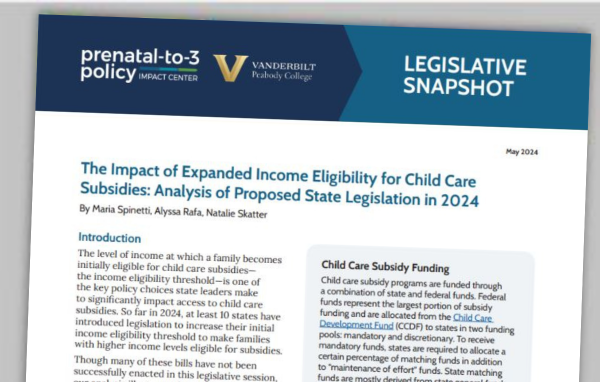State leaders can significantly increase the number of children eligible for child care subsidies across the country by expanding income eligibility thresholds.
The level of income at which a family becomes initially eligible for child care subsidies—the income eligibility threshold—is one of the key policy choices state leaders make to impact access to child care subsidies. So far in 2024, at least 10 states have introduced legislation to increase their initial income eligibility threshold to make families with higher income levels eligible for subsidies. This analysis illustrates the impact legislation like this could have on the number of children eligible across states. Dig into the details of these bills and their impact in our Legislative Snapshot.




